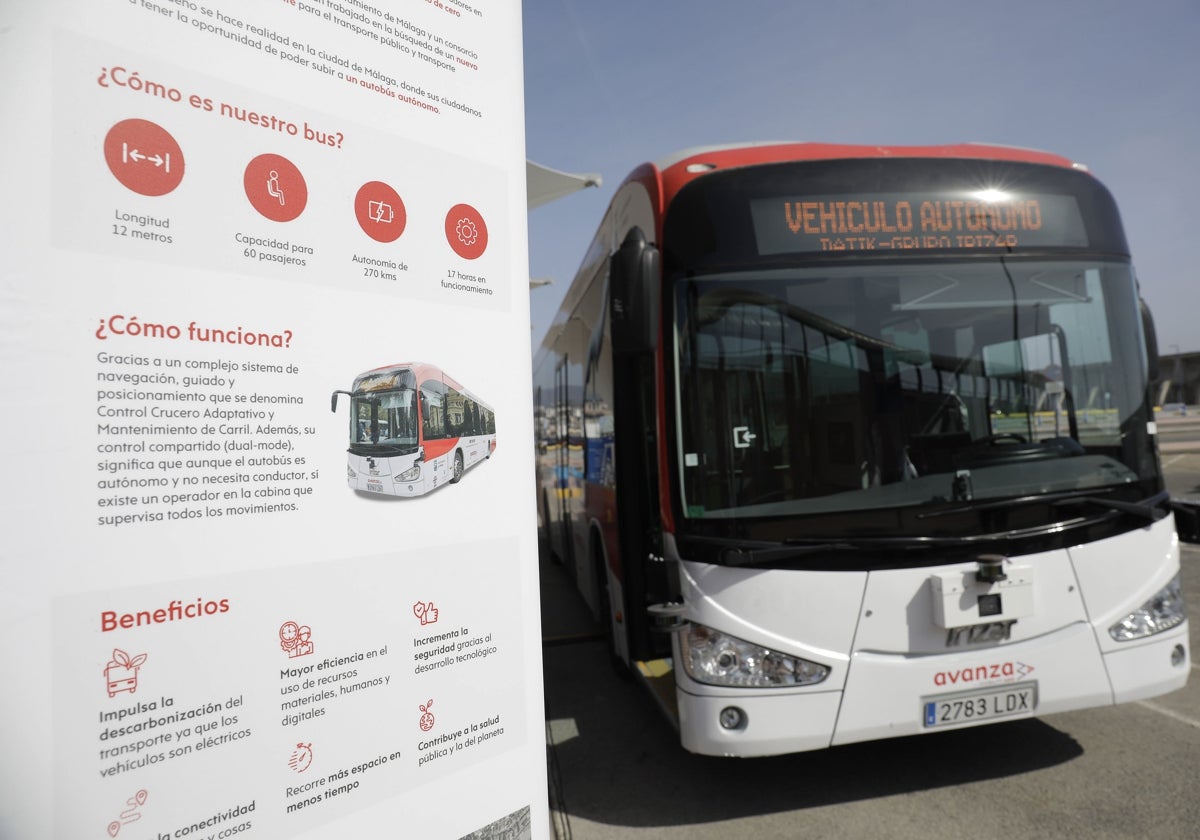Malaga's driverless bus passes the test of future users with flying colours
A study by the university's chair of transport management highlights the perception of safety that travelling in a self-driving vehicle generates
The self-driving bus, already in pilot tests in several cities, including Malaga, is being well valued by users, who highlight the perception of safety and confidence that travelling in a driverless vehicle generates. This data is the result of a study carried out by the chair of transport management at the University of Malaga (UMA), directed by Sebastián Molinillo, professor of marketing, in collaboration with researchers from the University of Granada, the Malaga transport company (EMT) and the Avanza group.
The study was based on tests being carried out in Malaga with slef-driving buses, part of the AutoMOST (automated driving for transport in dual system) project financed by the Spanish government.
The pilot test was carried out in three phases. In the first phase, the route was mapped and communications between the bus and its driving environment (e.g. traffic lights) were tested. In the second phase, the system was tested without passengers. In the third phase, which lasted two weeks, a total of 1,281 passengers travelled on the driverless bus free of charge. The vehicle travelled from the maritime station of Malaga port to Paseo del Parque, a route of eight kilometres.
As a pioneering experiment in Europe, the project has received two awards: the award for 'best industrial application' from the Spanish chapter of the intelligent transport systems society and the award for 'autonomous and connected vehicles', awarded by the intelligent transport system of Spain (ITS).
Publication
The study, published in the prestigious Journal of Retailing and Consumer Services, focuses on how perceived behavioural control, attitude and social influence affect users' willingness to travel on self-driving buses. It also examines the impact of perceived safety and trust in these vehicles, as well as the influence of participants' previous experience with autonomous buses.
The results indicate that attitudes towards autonomous buses and social influence play a significant role in the acceptance of this technology. "The perception of safety and trust in the vehicle are crucial factors that influence the perceived benefits and, in turn, passenger satisfaction," said Lidia Caballero Galeote, a student on the PhD programme in economics and business and one of the authors of the study. With regard to the link between the UMA and the business world, which is key to this work, Galeote said, "These projects not only demonstrate the strength of the agreements with large companies, but also the active participation of the UMA in initiatives to transfer knowledge to the general public."
Previous experience
Furthermore, the research reveals a strong impact of previous experience, "as users who have experienced the autonomous bus are more likely to use it if it were implemented in the EMT bus fleet than those public transport users who did not experience the bus during its trial period", Sebastián Molinillo added.
As disadvantages, they point to the problems for older people or the effect on employment
Users participating in the study also highlighted the difficulties that the autonomous bus may represent for some groups, such as the elderly, or its effects on employment. They also highlighted the advantages for the city and the environment. The authors of the study emphasise that it is the first research in Europe on the intention to use the autonomous bus on open public roads. "The present study has extended the understanding of the effect of trust in autonomous buses," say the authors.
They propose that transport companies inform potential users about the features of autonomous bus services. "Improving users' knowledge will increase their sense of trust and perceived safety, which will increase the intention to use the service and reduce the high-tech idealisation of the service that can cause disappointment among users after using the autonomous bus," the study says.

